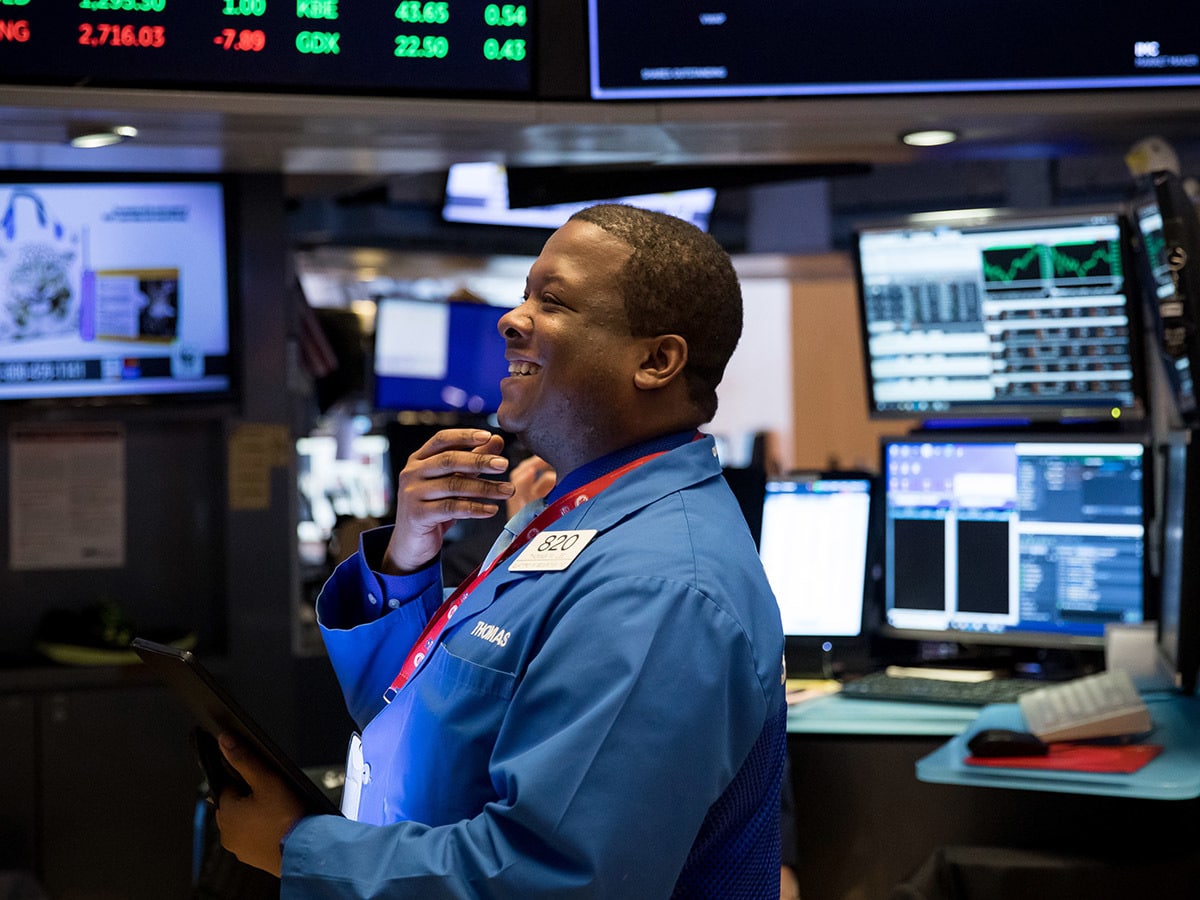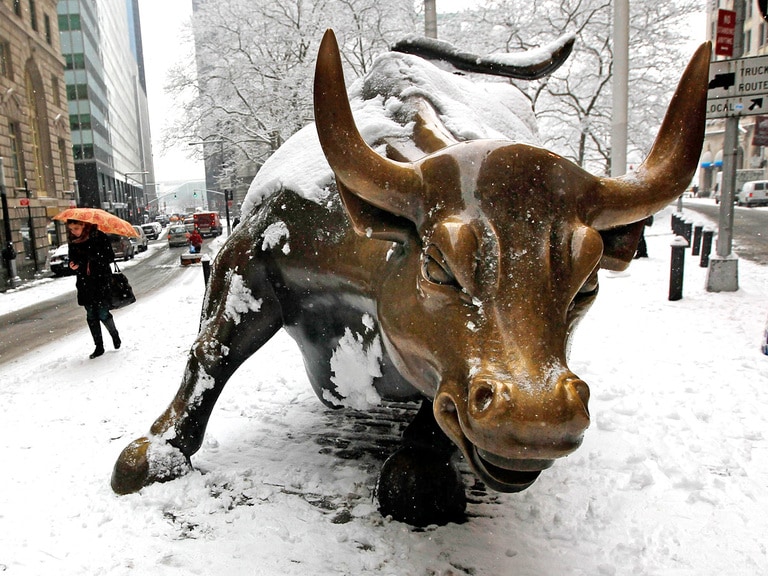Despite hitting a 52-week low of $6,631.42 on 23 March, the Nasdaq Composite Index [IXIC] rose to an unprecedented high of 10,086.89 during intraday trading on 10 June before closing at 10,020,35. The record high represents a 51% difference from its March low.
The Nasdaq index’s performance has no doubt benefitted from recent surges in the share prices of FAANG stocks Facebook [FB], Amazon [AMZN], Apple [AAPL], Netflix [NFLX] and Alphabet [GOOGL].
Although these FAANG share prices fell with the Nasdaq in mid-March, all have since recovered and are up by an average of 25.06% YTD (through 19 June). Amazon share price led the way (40%), while Alphabet’s share price increase lagged its FAANG counterparts on the Nasdaq (4.1%).
25.06%
Average YTD share price rise of the FAANG stocks
While growth for the S&P 500 [SNP] and the Dow [DJI] are both down YTD (through 19 June), 4.9% and 10.4% respectively, the Nasdaq is up 9.4% in the same period. Is it just the performance of FAANG share prices that has helped the Nasdaq index to so drastically outperform other indices?
Tech ascends to the top of the market
With most of us spending more time at home than ever before it’s the tech companies - like FAANG - that are seemingly benefitting from the coronavirus pandemic, and pushing tech-heavy indices, like the Nasdaq, ever higher. The work-from-home trend has made them potentially safe bets during these uncertain times, chiefly those companies that are catering to life in lockdown through cloud computing, e-commerce and streaming services.
“Investors have proved to be fairly predictable in their behaviour,” Dan Caplinger writes in The Motley Fool. “When coronavirus concerns arise, they’ve turned to the stocks that stand to gain the most from trends toward working from home and internet connectivity.”
“Investors have proved to be fairly predictable in their behaviour. When coronavirus concerns arise, they’ve turned to the stocks that stand to gain the most from trends toward working from home and internet connectivity” - Dan Caplinger
FAANG stocks, among other tech giants, offered strength and stability to investors in a time where such traits were seldom found. When the sector reported its Q1 earnings results several weeks ago, many showed relatively safe free cash flow production, reliably strong earnings growth and the willingness to make long-term investments — all good signs for those invested in FAANG share prices, and other tech stocks like them.
“With this unprecedented COVID-19 pandemic causing a near-term consumer/enterprise spending abyss and the markets under major pressure, the FAANG names have been viewed as relative safety blankets in this scary Category 5 storm,” Wedbush tech analyst Dan Ives told Yahoo Finance.
There are, of course, concerns over the effects that a second-wave of the coronavirus might have on the US economy. However, these have been subdued by stimulus efforts from the US government and the Federal Reserve — at least for now.
As well as buying corporate debt ETFs, the Fed has pledged to keep the benchmark short-term rates close to zero until 2022 to allow consumers and businesses to take advantage of loans. The central bank already began buying corporate debt ETFs in May.
“With the Federal Reserve back in business backstopping corporate credit, and printing money to lend to companies directly, it was immediately back to business as usual for the peak-virus, buy-everything herd,” said Jeffrey Halley, senior market analyst at Oanda, in a note to clients, according to CNN.
“With the Federal Reserve back in business backstopping corporate credit, and printing money to lend to companies directly, it was immediately back to business as usual for the peak-virus, buy-everything herd” - Jeffrey Halley, senior market analyst at Oanda
Wall Street turns bearish
Meanwhile, last week Bloomberg reported that the US government is mulling over plans to inject nearly $1trn into the country’s infrastructure to motivate the economy, according to Bloomberg. The investment will not only cover the cost of roads and bridges but the building of a 5G infrastructure and rural broadband networks — giving another reason for investors to rally behind the Nasdaq.
Although this government intervention is calming investors over fears of a coronavirus fallout (not to mention the geopolitical and civil unrest), Wall Street isn’t entirely bullish, according to CNN.
The publication points to survey of fund managers by the Bank of America, published in June, suggests that investors are past “peak pessimism, but their optimism is fragile and neurotic”.
“The largest number of fund managers since 1998 think the stock market is ‘overvalued’,” the publication said. “Just 37% of those polled are prepared to say we’re in a new bull market, while 53% still call recent stock gains a ‘bear market rally’ and are bracing for another fall.”
“Just 37% of those polled are prepared to say we’re in a new bull market, while 53% still call recent stock gains a ‘bear market rally’ and are bracing for another fall” - survey referenced by Bloomberg
Disclaimer Past performance is not a reliable indicator of future results.
CMC Markets is an execution-only service provider. The material (whether or not it states any opinions) is for general information purposes only, and does not take into account your personal circumstances or objectives. Nothing in this material is (or should be considered to be) financial, investment or other advice on which reliance should be placed. No opinion given in the material constitutes a recommendation by CMC Markets or the author that any particular investment, security, transaction or investment strategy is suitable for any specific person.
The material has not been prepared in accordance with legal requirements designed to promote the independence of investment research. Although we are not specifically prevented from dealing before providing this material, we do not seek to take advantage of the material prior to its dissemination.
CMC Markets does not endorse or offer opinion on the trading strategies used by the author. Their trading strategies do not guarantee any return and CMC Markets shall not be held responsible for any loss that you may incur, either directly or indirectly, arising from any investment based on any information contained herein.
*Tax treatment depends on individual circumstances and can change or may differ in a jurisdiction other than the UK.
Continue reading for FREE
- Includes free newsletter updates, unsubscribe anytime. Privacy policy





